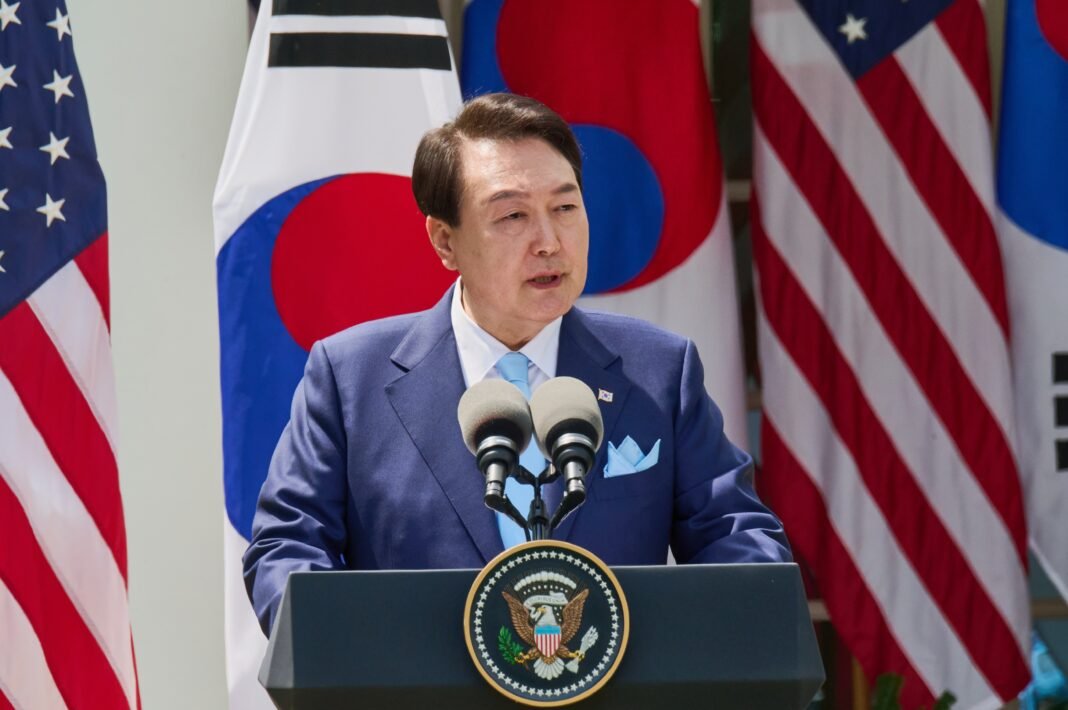South Korean President Yoon Suk Yeol withdrew his martial law declaration early Wednesday after facing intense backlash. His unexpected decree, announced late Tuesday, provoked strong protests in Seoul and condemnation from political leaders.
Opposition leaders called the move unconstitutional and vowed resistance. Parliament swiftly passed a motion demanding the order’s repeal. During tense moments at the National Assembly, staffers used fire extinguishers to block armed martial law forces from entering the building.
Hours later, Yoon’s ruling People Power Party urged him to retract the decree, citing the parliamentary vote. By 4:30 a.m. Wednesday, the Cabinet approved a motion to end martial law, according to Yonhap News Agency.
Political Battle Escalates
Yoon had justified his declaration in a late-night address, claiming it was necessary to combat North Korean threats and protect South Korea’s constitutional order. However, his explanation failed to ease concerns at home and abroad.
The United States expressed alarm over the developments. “Democracy is foundational to the U.S.-ROK alliance,” a White House spokesperson said. U.S. officials confirmed that Washington was not informed of the decree in advance and pledged to monitor the situation closely.
Tensions had been mounting between Yoon’s party and the opposition Democratic Party, which controls a two-thirds majority in parliament. This political conflict intensified after Yoon’s party suffered heavy losses in the April elections.
Prominent Democratic Party leader Lee Jae-myung condemned the move, warning of economic collapse and urging citizens to protect the National Assembly. Protesters and union members rallied in central Seoul, demanding Yoon’s resignation.
Calls for Impeachment
Opposition leaders labeled Yoon’s actions a betrayal of democratic principles and called for his impeachment. A coalition of lawmakers announced plans to propose a bill for Yoon’s removal, aiming for a vote within 72 hours.
South Korea’s largest union coalition, the Korean Confederation of Trade Unions, pledged strikes and mass rallies until Yoon stepped down. Meanwhile, more than ten senior aides to the president reportedly resigned in protest.
Historical Parallels and U.S. Relations
Yoon’s martial law declaration marked South Korea’s first such measure in over 40 years. Critics likened it to the authoritarian rule of former dictator Chun Doo-hwan, who imposed martial law in 1980 after a military coup.
Experts suggest Yoon’s decision reflects his waning popularity and the opposition’s growing strength. Syd Seiler, a senior adviser at the Center for Strategic and International Studies, described it as a desperate attempt to regain political control.
Despite the turmoil, U.S.-South Korea military ties remain strong. Hosting around 28,000 U.S. troops, South Korea plays a critical role in regional defense against North Korea. U.S. officials reaffirmed their commitment to this alliance, stating it remains unaffected by the current crisis.
Yoon’s reversal on martial law temporarily diffused the crisis, but his political future hangs in the balance as impeachment threats loom.
